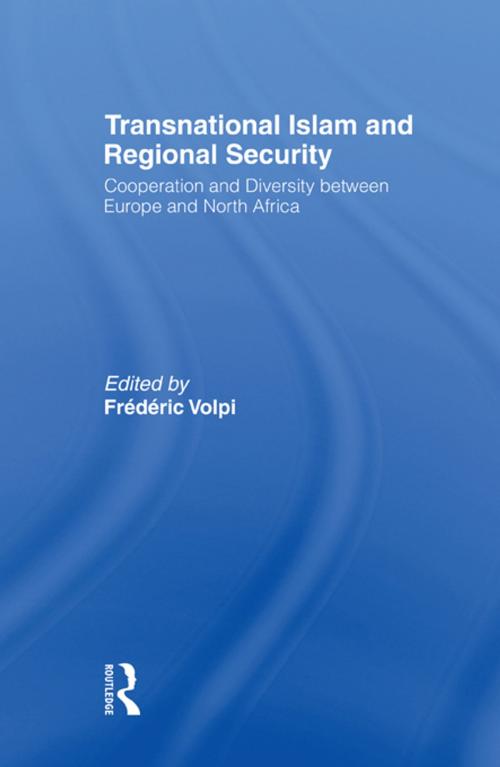Transnational Islam and Regional Security
Cooperation and Diversity between Europe and North Africa
Nonfiction, Religion & Spirituality, Middle East Religions, Islam, Social & Cultural Studies, Political Science, International| Author: | ISBN: | 9781317998457 | |
| Publisher: | Taylor and Francis | Publication: | September 13, 2013 |
| Imprint: | Routledge | Language: | English |
| Author: | |
| ISBN: | 9781317998457 |
| Publisher: | Taylor and Francis |
| Publication: | September 13, 2013 |
| Imprint: | Routledge |
| Language: | English |
This volume investigates the impact of a new brand of transnational terrorism and political violence produced by radical Islamist groups from the Maghreb on the regional security dynamics. It describes the causes of the problems and the strategies devised by European and North African states in order to address it and details the successes and failures of co-operation between states and society on both shores of the Mediterranean.
Investigating the grand security strategies that have been devised for the Mediterranean after the Cold War and after 9/11, the contributors focus on the role of police and military apparati in securitizing the new threats that have become prominent after 9/11, and the unintended consequences of these strategies.
In addition, the contributors analyze the relationship between Islamist groups, the state and society and highlight some key causes of political violence and radicalism. They outline how a better use of the law, migration, and intercultural dialogue might provide useful alternatives or complements to the mostly securitarian strategies that are currently dominant in the region.
This volume investigates the impact of a new brand of transnational terrorism and political violence produced by radical Islamist groups from the Maghreb on the regional security dynamics. It describes the causes of the problems and the strategies devised by European and North African states in order to address it and details the successes and failures of co-operation between states and society on both shores of the Mediterranean.
Investigating the grand security strategies that have been devised for the Mediterranean after the Cold War and after 9/11, the contributors focus on the role of police and military apparati in securitizing the new threats that have become prominent after 9/11, and the unintended consequences of these strategies.
In addition, the contributors analyze the relationship between Islamist groups, the state and society and highlight some key causes of political violence and radicalism. They outline how a better use of the law, migration, and intercultural dialogue might provide useful alternatives or complements to the mostly securitarian strategies that are currently dominant in the region.















